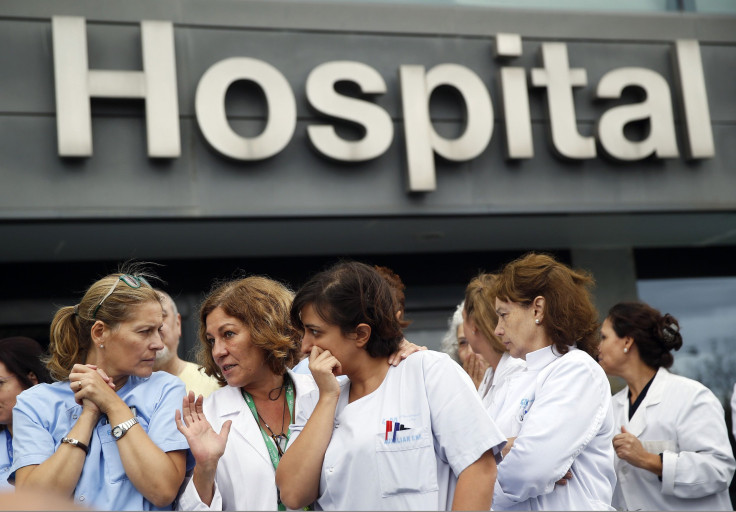Four hospitalized in Spain after first Ebola transmission outside Africa

MADRID (Reuters) - Four people have been hospitalized in Spain to try to stem the spread of Ebola after a Spanish nurse became the first person in the world known to have contracted the virus outside of Africa, health authorities said on Tuesday.
The nurse, who tested positive for the virus on Monday, her husband, who is showing no symptoms of the disease, and two other people are being closely monitored in hospital, health officials told a news conference in Madrid.
One of those hospitalized is a health worker who has diarrhea but no fever. The other is a Spaniard who traveled from Nigeria, said Rafael Perez-Santamaria, head of the Carlos III Hospital where the infected nurse treated two Spanish missionaries who contracted the disease in Africa.
With concerns growing around the world of the Ebola pandemic spreading beyond West Africa, the Spanish officials sought to reassure the public that they were tackling the threat.
Twenty-two people who came into contact with the nurse are being monitored, Perez-Santamaria said. They have not been isolated but they are having their temperature taken twice a day to check for signs of infection.
Officials said they were still investigating how the nurse was infected.
She went on holiday after the second of the missionaries she had been caring for died on Sept. 25, although, they stressed, she had not left Madrid.
She began feeling ill on Sept. 30 and was diagnosed with Ebola on Monday.
"This has taken us by surprise," said Perez-Santamaria. "We are revising our protocols, improving them."
A spokesman for the European Commission said the case would be discussed at an EU Health Security Committee meeting on Wednesday.
"The priority remains to find out what actually happened," he said.
Jonathan Ball, a professor of molecular virology at Britain's University of Nottingham, said the nurse should not have contracted the deadly disease if appropriate containment and control measures had been taken.
"It will be crucial to find out what went wrong in this case so necessary measures can be taken to ensure it doesn't happen again," he told Reuters.
The nurse is being treated with antibodies from previous infected patients, Perez-Santamaria said.
By Inmaculada Sanz and Sarah Morris
(Additional reporting by Kate Kelland in London and Philip Blenkinsop in Brussels; Editing by Julien Toyer and Robin Pomeroy)



























